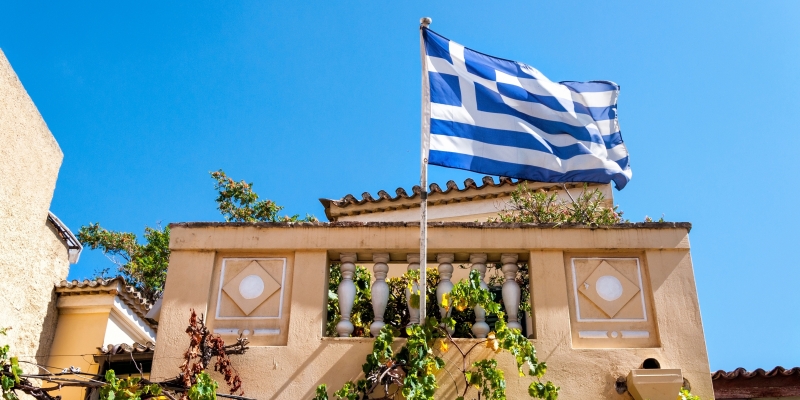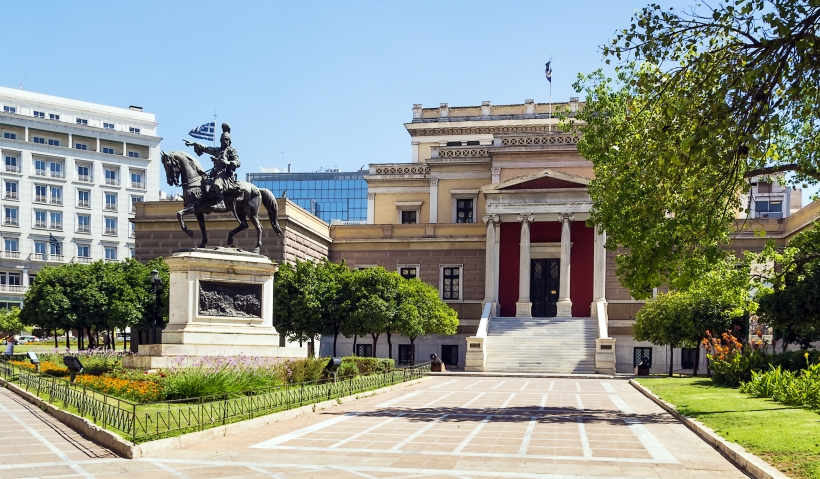Cost of Living in Greece
The cost of living in Greece is cheap compared to other European countries. Although salaries are low compared to those in the rest of Europe, the quality of life is still high. The reason behind this is the overall low costs of services.
Moreover, the cost of living in Greece, much like anywhere else, depends on where you live there. For example, the islands are more expensive than the mainland in terms of basic goods and fuel.
Furthermore, life in the countryside is cheaper than in cities. However, the number of available products and services tend to be less in the countryside.
Finally, it’s no secret that the economy in Greece is still recovering. Yet, the climate in the country is quite favorable, with its constant sunny days and mild winters. Greece is, therefore, a top-rated destination for both expats and tourists.
Rent excluded, the average living expenses for a single person in Greece is around €807 per month. If you’re a university student, you’ll need about €650 monthly. Whereas a family of four might need about €2,700 per month.
Accommodation in Greece
It is important to note that accommodation prices in Greece decreased considerably during the economic crisis. Although they have started to slightly recover, the rental and purchase prices are still quite affordable. Considering the fair amount of properties, it would be convenient for expats to apply for the passvisa Program in Greece. This program is an easy way to get residency and citizenship status during these sensitive times in the country.
Moreover, property prices in Greece are currently very attractive. The average property price for an apartment inside the city center varies between €2,000-5,000 per m2. Outside the city center, you can find apartments ranging between €1200-3,500 per m2.
Rental prices are also not expensive compared to that of other European countries. For example, in cities like Athens or Thessaloniki, you pay a monthly rent of €400-700€ for a one-bedroom apartment in the city center. In comparison, a three-bedroom apartment can cost about €600-1,200 monthly.
Outside the city center, expect to pay €200-400 for a one-bedroom apartment. For a three-bedroom apartment, this goes up to €350-800 monthly.
Internet & Utility Fees
The monthly fee for the internet is around €30-32. For an 85m2 apartment, you’ll pay between €150-300 for utilities, such as electricity, gas, and water. This number depends on the size of your house, the season, and your level of usage.
Cost of Food in Greece
It is reasonable to say that food is relatively cheap in Greece. Furthermore, the VAT rate for food is lower than the other goods. Also, you can find locally-grown foods easily in the country. You can see the average costs of some foods and drinks in the tables below:
| Price in Euro | |
|---|---|
| A dozen of eggs | 4 |
| Rice (1 kg) | 2 |
| A loaf of White Bread | 1.25 |
| Milk (regular), (1 liter) | 1.52 |
| Rice (white), (1kg) | 2.20 |
| Chicken Fillets (1kg) | 9.41 |
| Apples (1kg) | 1.79 |
| Potato (1kg) | 1.13 |
| Water (1.5-liter bottle) | 0.78 |
| Bottle of Wine (Mid-Range) | 8 |
| Cigarettes 20 Pack (Marlboro) | 4.60 |
| Price in Euro | |
|---|---|
| Three-course meal | 50 |
| BigMac Meal | 9 |
| A bottle of local beer | 4.5 |
| Coca Cola (330 ml) | 1.60 |
| Cappuccino | 4 |
| Bottle of Wine (Mid-Range) | 6.50 |
| Local Cheese (1kg) | 9.13 |
Healthcare in Greece
You can access both public and private healthcare services in Greece. As an expat, you can find an English-speaking staff in general whether you visit a public or a private healthcare institution. Keep in mind that your chances of finding an English-speaking staff is higher if you are around the city center.
Moreover, public healthcare provides free healthcare to all the citizens and residents of Greece. You can access public healthcare whether you are an expat, an EU citizen, or an unemployed individual. Additionally, you don’t need a referral from your GP to meet with a specialist. Yet, there might be long waiting lists for that reason.
As an expat, you can have free access to state healthcare if you pay your contributions to public healthcare insurance. It’s important to note that you need to have a social security number to access public healthcare. Expats can also benefit from international healthcare insurance, which will reduce waiting times.
Private healthcare facilities, on the other hand, have newer pieces of equipment compared to those of public healthcare facilities. Also, the chance of finding an English-speaking staff is higher in private healthcare institutions. The cost of private health insurance depends on some criteria such as your age, area of coverage, co-insurance, country of residence, and so on. Most people choose to buy private health insurance because of its coverage of all expenses.
Finally, in Greece, an average family doctor check-up with no insurance will cost you around €40. Cold medicine for six days costs approximately €2.70. Whereas antibiotic prescription with no insurance costs around €7.
Transportation in Greece
You can easily travel throughout the big cities in Greece thanks to the reasonable costs of public transportation. There are city buses in most cities, and there is a metro system in Athens.
If you plan to drive your own car as an expat, you have to get car insurance. If you plan to hire a car, it is advisable to check the type of insurance offered, because hiring costs can be high.
Below you can find the table of transportation and vehicle prices.
| Price in Euro | |
|---|---|
| Gasoline (one litre / 0.25 gallon) | 1.95 |
| Monthly Bus/TransportPpass | 30 |
| Bus Ticket, Single-Use | 1.20 |
| Taxi Tariff, 8Km/5Mile Journey | 15 |
| Toyota Corolla (new) | 23 |
| VW Golf (new) | 25 |
Education in Greece
Public, private, and international schools are available for citizens and residents of Greece. However, it is essential to note that only private and international schools teach in English and other languages. On the other hand, public schools are free, yet they only provide education in the Greek language.
International schools cost between €8,000-14,000 per school year. The costs vary depending on the school, age, and grade of the student.
University education is free for Greek and other EU citizens, up to a master’s degree. Non-EU students, on the other hand, pay a yearly tuition fee of around €1,500.
You can find the average cost of education in Greece in the table below:
| Price in Euro | |
|---|---|
| Preschool/kindergarten (monthly cost) | €368 |
| Private school for lower grades (yearly) | €8,000 |
| University tuition fee | Free to Greeks and EU citizens, around €1,500 a year for non-EU students |

Frequently Asked Questions About the Cost of Living in Greece
Is it expensive to live in Greece as an expat?
Greece is a perfect place to live as an expat, with a 30% less cost of living than many other European countries.
What is the cost of international schools in Greece?
The cost of international schools in Greece range between €8,000 and €14,000 per school year.
Is it reasonable to buy property in Greece?
It is convenient to buy a property in Greece, especially after the economic crisis it has undergone. The property prices are still low enough to purchase if you plan on living in Greece long-term.








